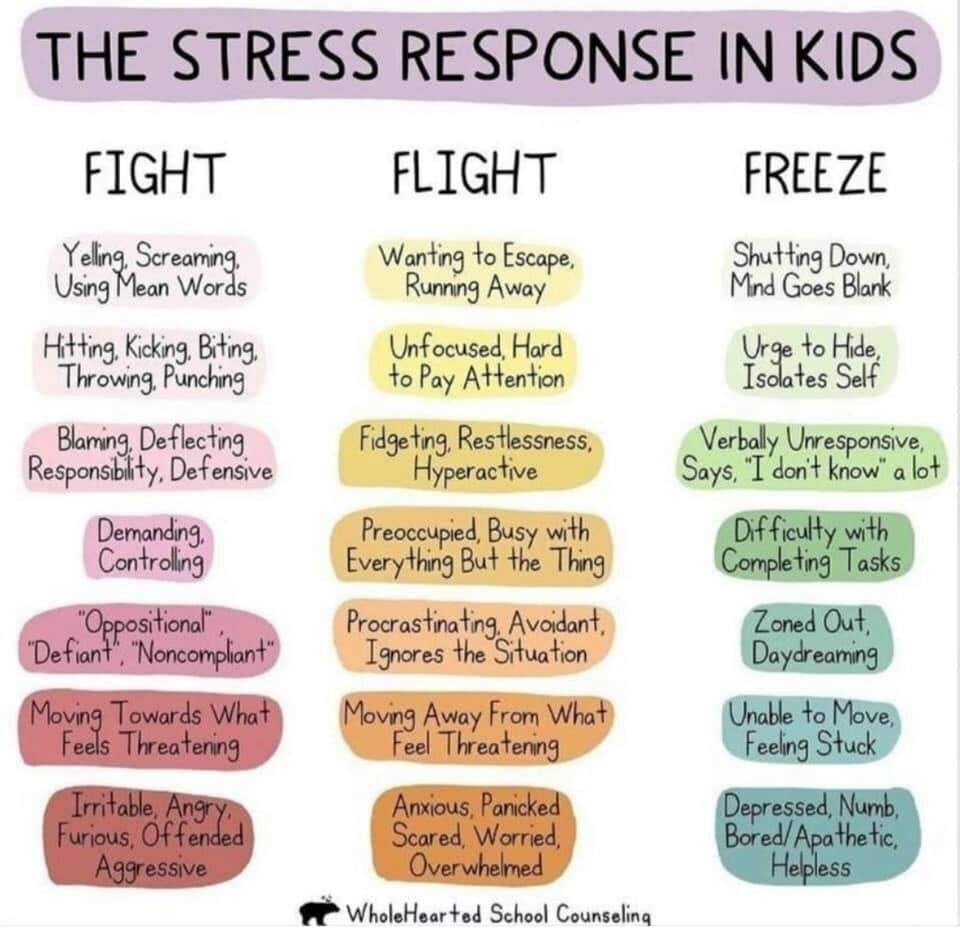The Stress Response in Kids
Hello parents/caregivers, adults around kids....
Here is some helpful info and a strategy to help you with children. ⬇️
The work as a parent is constantly within ourselves, as we answer two questions:
1. How am I ‘showing up’ in this relationship?
2. Do I typically help my children by responding or do I typically make things worse by emotionally reacting?
When we learn and understand that our children’s behavior is a symptom of the root cause of them being in the amygdala part of their brain, which I call the little brain (thanks Dr.Siegel).
This allows us to meet our children with empathy, kindness, and compassion.
When our kids enter their ‘little brain’-they automatically (without choice) enter FIGHT, FLIGHT, FREEZE mode, and when we see and hear these behaviors- this will automatically emotionally trigger us.
At this moment we have a choice:
Do I stay calm as a parent and help them?
Or
Do I let my own “little brain” take over and enter FIGHT, FLIGHT, FREEZE mode with them?
To avoid this emotional trap, use this parenting strategy- THE 5 R’s
1. Recognize- My child is experiencing Big Feelings. They have entered their little brain.
They are not in control of their behavior right now. I need to help them
2. Respond- I need to effectively respond, not emotionally react to my child. I need to use self-talk and breathing to calm myself.
3. Regulate- I need to help my child to co-regulate their emotions or remind them how to self-regulate.(holding safe space for feeling, offering supportive comments, keep it short and to the point, they are in their little brain and not hearing too much, non-verbal communication is important).
Offer a touch or a hug.
4. Relate- I need to seek to understand and use empathy to validate what they are experiencing and feeling. I need to meet them with kindness and compassion.
“I know this is scary” “I understand why you are angry” “I would be too” “this sucks”
5. Reason- Once my child is no longer consumed by Big Feelings then I can reason with them, and TEACH(not punish) them.
I can remind and show them what behavior is acceptable and what is not acceptable, I can help them learn from these situations.
*The 5 R’s is helpful, and the 5th R-Reason only happens when your child is in a calm mindset to have this conversation.
This can happen hours later or the next day, or when you are reading a book or watching a movie, whenever an opportunity for teaching occurs.
Our default as parents is to try to “fix it” instantly, to stop the emotional overwhelm our child is feeling but our children just like us adults- need to get that “emotional stuff” out of our bodies, it can’t be suppressed, or it builds up.
Emotional releases are signs of being healthy, not that there is something wrong with us.
We all have brains that contain FIGHT, FLIGHT, and FREEZE Mode.

